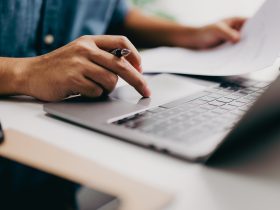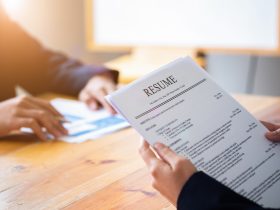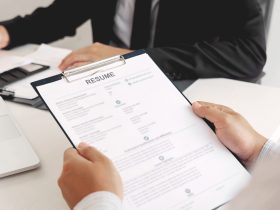Decoding Panel Interviews
Delving into panel interview success tips for achieving success, it’s crucial to grasp such interactions. A panel interview usually involves a candidate facing a group of interviewers, each offering distinct viewpoints within the organization. This structure allows the employer to assess the candidate’s fit into the company culture and skills. In a group interview context, preparedness holds utmost importance. It’s not solely about making an impression on a single interviewer; rather, it’s about skillfully engaging with numerous decision-makers. The aptitude for effective communication, adaptation, and showcasing of one’s skills becomes pivotal.
Strategies for Panel Interview Readiness: The Definitive Blueprint
Thoroughly research the panel members to initiate your panel interview readiness by delving into the background of the interviewers. Grasp their roles, backgrounds, and the divisions they represent. This insight allows you to tailor your responses to the other person’s expectations. Establishing a connection with each panel member increases the likelihood of leaving a memorable impact.
Developing a narrative that summarizes experience, success, and skills draws the other person’s attention. You also need to make sure that your narrative is appropriate for the position you are interviewing for. Furthermore, anticipate queries from various panel members and seamlessly incorporate your responses into your narrative.
Prepare Comprehensive Illustrations
Panel interviews frequently encompass behavioral inquiries that demand specific examples from your prior experiences. Prepare a range of instances that illustrate your adeptness in problem-solving, teamwork, leadership, and adaptability. Possessing a reservoir of well-articulated scenarios will significantly enhance your confidence during the interview.
Demonstrate Versatility
In all probability, you will encounter a diverse array of questions during a panel interview. Demonstrate your versatility by showcasing your competence in various dimensions of the job. Convey to the panel that you are a well-rounded candidate, whether it pertains to technical proficiencies, interpersonal communication, or strategic thinking.
Panel interviews customarily conclude with the candidate posing questions. Prepare thoughtful and well-researched inquiries that underscore your enthusiasm for the role and the organization. These questions serve as a testament to your enthusiasm and unveil your strategic thinking and inquisitiveness.
Mastery of Group Interview Dynamics: Essential Tactics
By applying basic tactics in group interviews, you can ensure the process ends the way you want. The prominent tactics for group interviews can be listed as follows:
- Establish Meaningful Eye Contact
Maintaining meaningful eye contact with each panel member constitutes a potent technique. It exudes confidence and active engagement. When responding to queries, smoothly shift your gaze among the interviewers, addressing each one individually.
- Manage Your Body Language
Your body language communicates volumes in a panel interview. Sit up straight, refrain from fidgeting, and utilize gestures to underscore your points. A poised and receptive posture will project you as self-assured and capable.
- Individualized Addressing, Collective Incorporation
While addressing queries, acknowledge the individual who posed the question while also encompassing the other panel members. This inclusive approach underscores your proficiency in collaborating with a team and guarantees that everyone feels engaged in the conversation.
- Adaptability as the Keystone
The panel may deliberately challenge you with conflicting opinions or scenarios during a group interview. Maintain composure and adapt to the evolving dynamics. Demonstrate your capacity to handle varying perspectives with respect and flexibility.
- Active Listening
Listening carefully often remains an underestimated skill in group interviews. Pay close attention to the nuances of each question and take a moment to gather your thoughts before responding. Active listening signifies your competence in processing information and providing thoughtful responses.
Crucial Pointers for Panel Interview Triumph: Navigating Complex Scenarios
Uncluttered phrases will help you complete the panel discussion smoothly. After reviewing the techniques below, you can complete the panel interview with detailed preparation.
- Tackling Nervousness
Feeling nervous is entirely natural, but excessive nervousness can impede your performance. Counteract this by practicing deep breathing and positive visualization before the interview. Bear in mind that the panel aims to witness your genuine capabilities; thus, concentrate on showcasing your skills.
- Addressing Contradictory Questions
Different panel members might pose conflicting questions. In such situations, acknowledge both perspectives and present a well-balanced response. Such an approach demonstrates your skill in considering multiple viewpoints and discovering common ground.
- Confronting Unforeseen Challenges
Panel interviews might spring unforeseen challenges your way—these could encompass technical inquiries, ethical dilemmas, or situational complexities. Stay composed, seek clarification if necessary, and methodically address these scenarios.
The Concluding Flourish: Reflection and Follow-Up
After the panel interview, allocate time for self-reflection on your performance. Identify areas where you excelled and aspects that warrant improvement. This introspection will equip you for forthcoming panel interviews and foster your growth as a potential candidate. Furthermore, don’t forget to send a thank-you email to each panel member. Express gratitude for the opportunity, reaffirm your enthusiasm for the role, and briefly summarize why you perceive yourself as a splendid fit for the position. This considerate gesture leaves a favorable impression and sustains your presence in the interviewers’ memory.
Harnessing Opportunities Wisely
Group interview setting readiness might appear daunting, but with meticulous strategic execution, you can thrive in group interview contexts. Grasping the dynamics, preparing effectively, mastering group interview tactics, and adeptly navigating intricate scenarios will pave the way for your success in panel interviews. Remember, a panel interview transcends mere demonstration of qualifications; it is a showcase of your potential contributions to the organization. Embrace the challenge, display your proficiencies, and seize every opportunity that arises.









